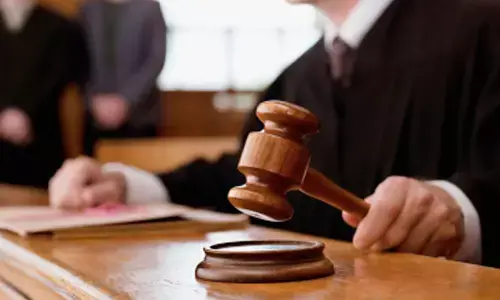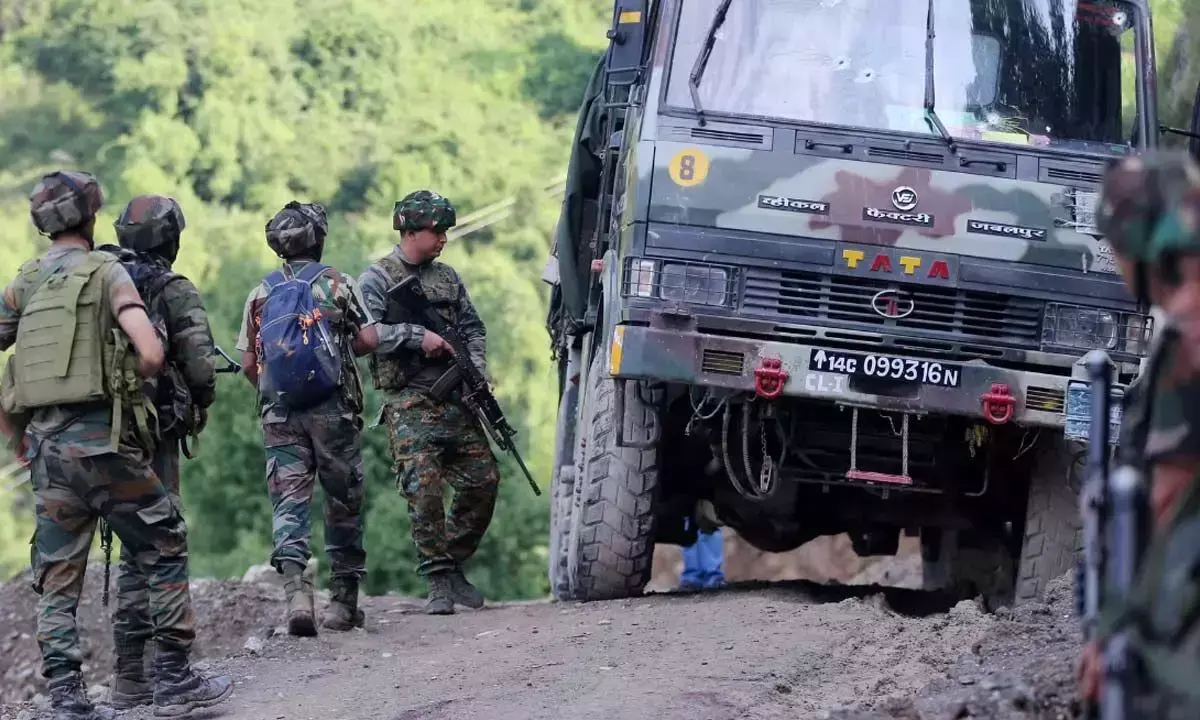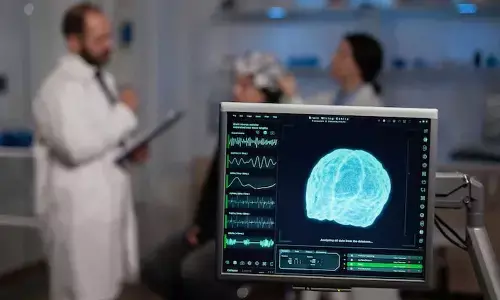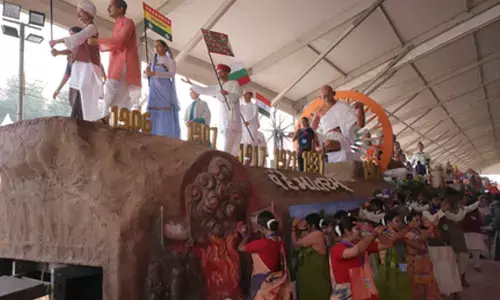Medical profession facing rising challenges
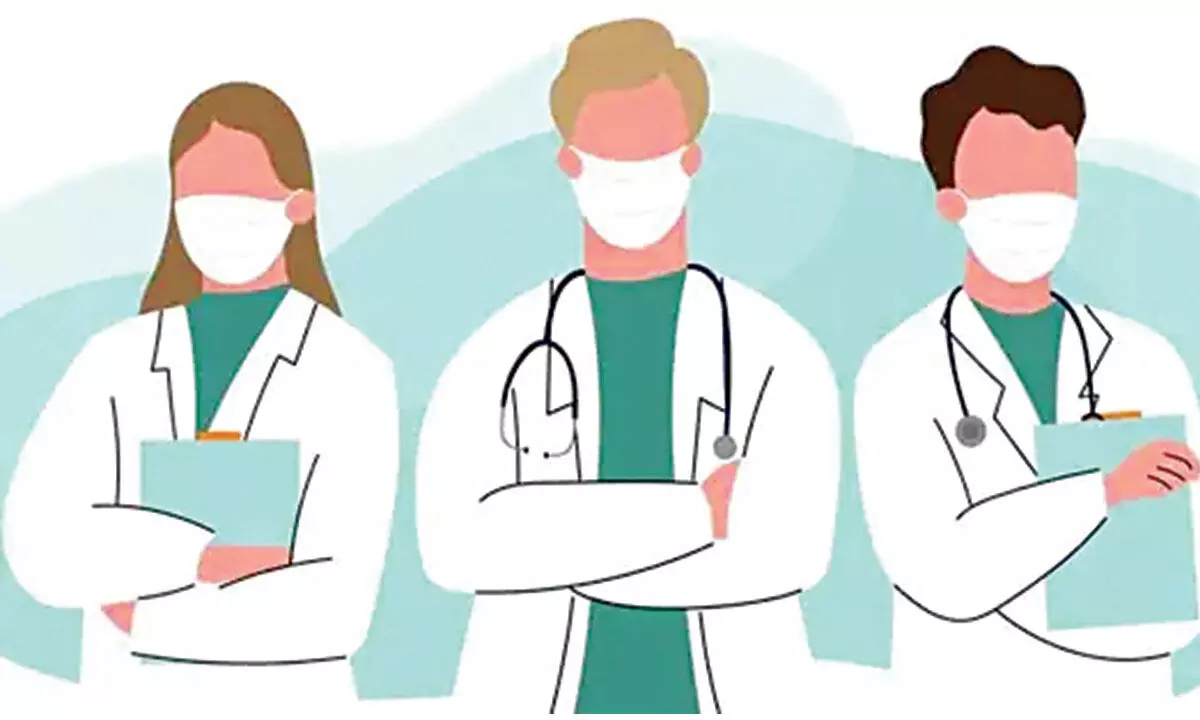
Representational image
The Pan American Medical Confederation, in 1953, agreed to commemorate December 3 as the International Doctors Day as a tribute to all medical professionals, in memory of the Cuban doctor Dr Carlos J. Finlay, who discovered the transmitter of yellow fever.
The Pan American Medical Confederation, in 1953, agreed to commemorate December 3 as International Doctors Day as a tribute to all medical professionals, in memory of the Cuban doctor Dr Carlos J. Finlay, who discovered the transmitter of yellow fever. Doctors Day is celebrated on different dates in different countries.
On July 1, the country observed Doctors Day. On that day, every year, the nation honors the contributions of Dr. B C Roy, renowned physician and formerly the Chief Minister of West Bengal.
The medical profession is considered one of the noblest of callings, with a doctor being expected to have the qualities of compassion, caring, helping etc., Most medical practitioners we know keep studying till the end of their practicing lives, in order to keep abreast with the latest developments in the medical field, in the interest of providing the best treatment to their patients.
The practice of medicine is a career that is not merely financially rewarding but demands an element of dedication to the cause of providing succor to the suffering and a sense of service. The time-honoured profession is not a trade and a good deal of sacrifice of personal comforts and pleasures is invariably involved.
What Mencius said over 2000 years ago, when he went to see the King Hui of Liang, is relevant to the medical practitioners today: "what is the point of mentioning the word 'profit'? All that matters is that there should be benevolence and rightness". The unfortunate labelling, of patients as clients, has somewhat undermined this concept, conveying, as it does, the flavour of a commercial relationship.
As I write this article, I cannot help recollecting the example of my father-in-law. Known as Gandhi, although his name was Somayajulu, was a medical practitioner by choice at Ramachandrapuram, a small town in East Godavari district of Andhra Pradesh. He had chosen that place at his father's instance, in preference to pursuing higher studies in medicine, to serve the poor of that area.
His father had done exceedingly well as a lawyer at Kakinada, the district headquarters, and wanted his son to help him repay his debt to society. The name Gandhi to be associated with him for good reasons, as the entire family, father and three sons wore nothing but khadi, and were devout supporters of the Indian independence movement. Somayajulu, in fact, even went to jail once during those days for defying the British.
Gandhi's method, of making both ends meet, was very simple. Never making any demands, he treated rich people, taking what he thought they could afford, while poor people got practically free service, occasionally persuading him to accept what they were able to pay. Although his contemporaries had pursued higher studies and were occupying high positions in different parts of the country, he could always teach them a thing or two about diagnosis and clinical treatment.
He was a stickler for medical ethics, and, although he practised for over forty years in that small town, there was not a whisper of complaint against him, either in regard to the drugs he prescribed, the procedures he conducted, or the references he made to other hospitals or doctors.
I still recall, with a sense of awe, how the most powerful and richest people (including ministers and high officials from Hyderabad, the state headquarters), invariably came to consult him and never called him. Among the few exceptions he made was the Raja of Ramachandrapuram, to whose palace he would go to treat the Raja's mother, out of consideration for her age and ailments.
There is, today, a hue and cry, from all quarters, that the medical profession no longer enjoys the respect it once commanded and has become a business. Doctors are being accused of malpractices, conducting needless procedures and even stealing organs from patients for transplantation. The recent decision, of the Supreme Court of India, making the provisions of the Consumer Protection act (CP act), applicable to doctors also, has only served to confirm this general feeling.
The attitude of the patients is not helping either. Most of them are restless for quick recovery, and keep changing doctors, hospitals and systems of medicine. The doctors are, therefore, in a predicament, with the patients and their relatives pressuring them on one hand, and specialists and super specialists, vying with each other to attract patients, on the other.
In their anxiety to retain their clientele, doctors take recourse to the use of powerful medicines which are expensive, and order a slew of investigations, to help diagnosis, In addition, they make references to specialists, in order to protect themselves from complaints of negligence. And then, there is the fear of being hauled up, for contravening the provisions of the CP act.
It is not difficult to appreciate the situation, given the fact that we live in a society driven by money. Doctors are no exception. Then there are the temptations, placed in the way of the doctors, by other actors of the health care system, such as manufacturers of pharmaceuticals, distributors of medicines and laboratories that perform investigations.
Despite the fact that regulations of the Indian Medical Council prohibit private doctors from taking gifts, accepting travel facilities and hospitality, they, continue to offer such inducements to medical practitioners, in the hope of securing their patronage. It is also alleged, by informed quarters, that many references to surgeons for procedures, while serving the need or protecting the referring physician from the complaint of negligence, are either unnecessary, or deliberately made in order to share the spoils.
Very often, the fact that a patient is insured is yet another factor, that encourages hospitals, to inflate bills, or unnecessarily extend the stay of patient in the hospital.
In the process, the suffering patient is put to untold hardships. It was during the recent Covid – 19 pandemic that the cartel syndrome came to the fore, in an ugly and painful manner.
That there was more, than what meets the eye, in the references for investigations, decisions to admit in hospitals, the duration of hospitalization, etc., became evident in several places. The general suspicion was that laboratories receiving samples showed their gratitude to the doctors sending them, and hospitals colluded with those laboratories as positive reports meant admissions and treatment, very often at high expense.
A patient in Amritsar, for instance, recently tested positive for Covid – 19 in a test conducted by a certain laboratory. Later, upon admission into a hospital's isolation ward, suspicious relatives got another test done in a government laboratory, which proved negative.
One does wish, however, that medical practitioners would remember the imperatives arising from the Hippocratic oath, which many medical schools ask their students to take, through which the doctors-to-be swear to uphold specific ethical standards, including the principles of medical confidentiality and non-malfeasance.
From the regulatory side, there is, clearly a need for procedures to deal with specific issues, such as travel subsidies and receipt of gifts, sponsorship of conferences and continuing education. The glaring conflict of interest needs to be identified, and resolved, in a determined and purposeful manner.
(The writer is former Chief Secretary, Government of Andhra Pradesh) (The opinions expressed in this column are that of the writer. The facts and opinions expressed here do not reflect the views of The Hans India)









